The 5 best nonfiction books of 2017
Enjoy some of the best books of the year
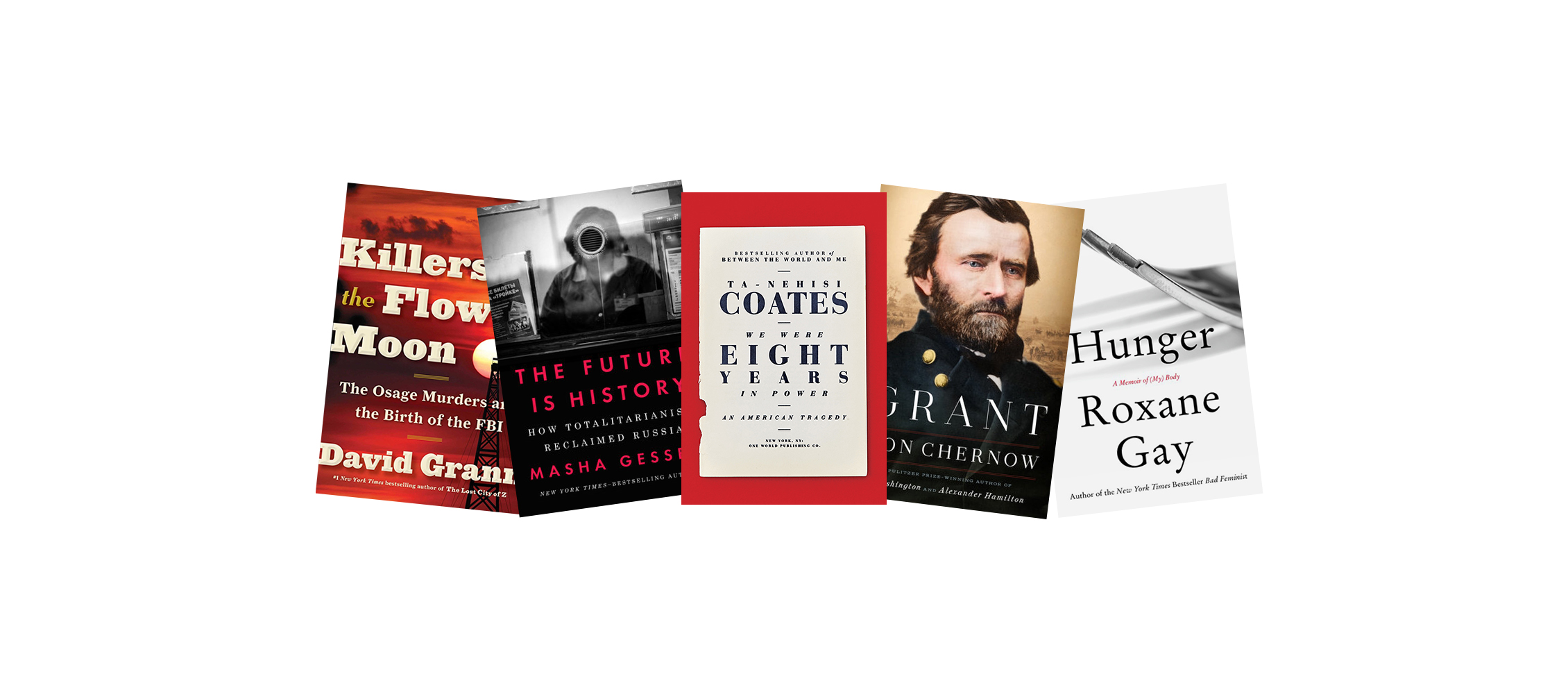
A free daily email with the biggest news stories of the day – and the best features from TheWeek.com
You are now subscribed
Your newsletter sign-up was successful
1. Killers of the Flower Moon by David Grann (Doubleday, $29)
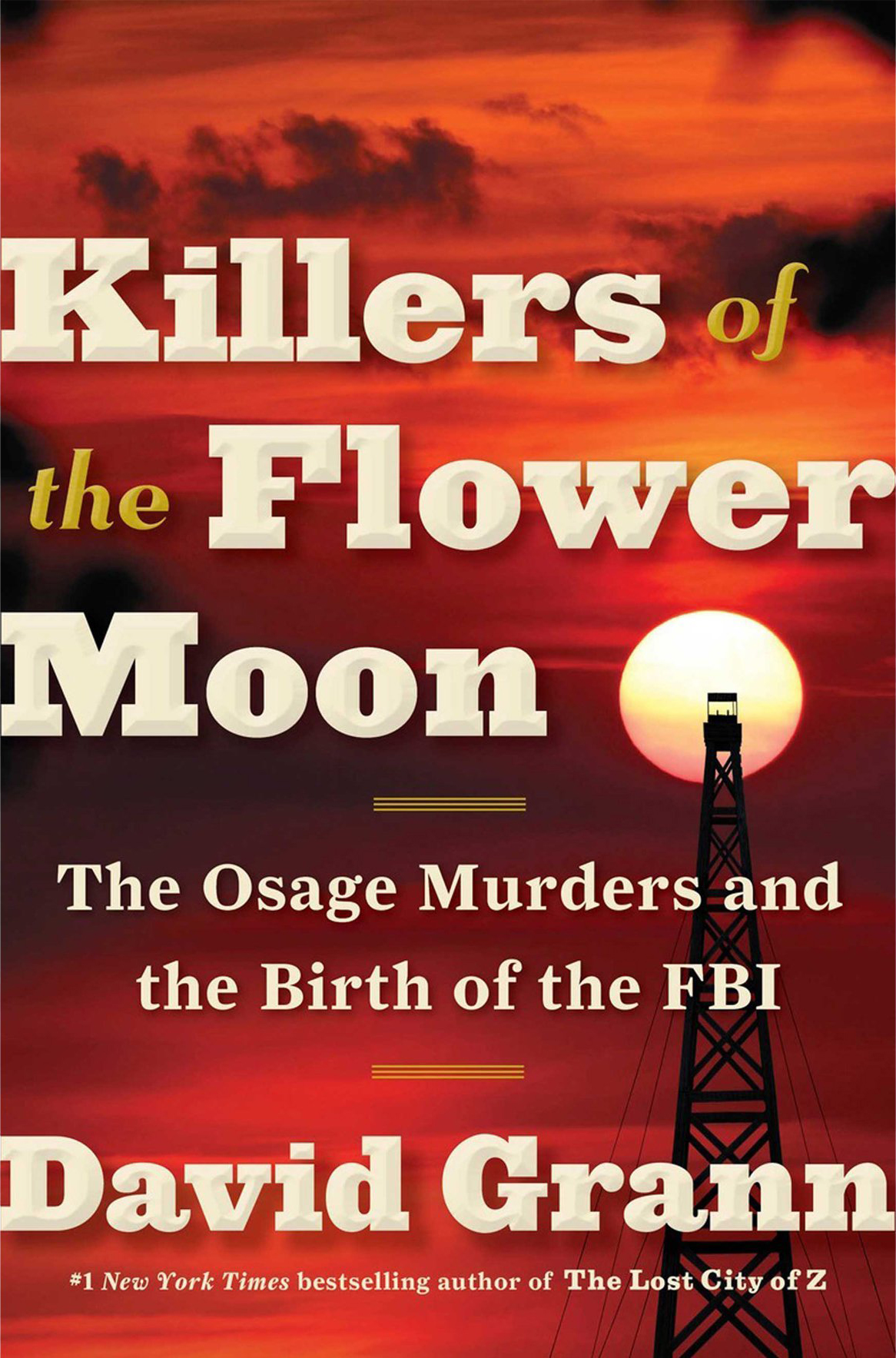
Give David Grann's latest a chance to get its hooks in you, and "it will sear your soul," said Dave Eggers at The New York Times. A "riveting" true-crime tale, Killers of the Flower Moon revisits a spate of 1920s Oklahoma murders that terrorized members of the Osage tribe shortly after an oil strike turned them overnight into the wealthiest people in the world. When local law enforcement failed to identify any of the perpetrators, J. Edgar Hoover's fledgling FBI pulled together an undercover team that unearthed a disturbing conspiracy rooted in white resentment. And until the big reveal arrives, "you will not see it coming." But Hoover didn't even get the whole story, said Tom Drury at Slate. Grann, whose previous book was The Lost City of Z, spends the last 70 pages of this one laying out evidence that entire communities had actively supported the killings. "This is a book that may significantly alter your view of American history."
A dissent: Grann's wishy-washy final summation proves "as frustrating as what comes before it is compelling," said Dara Lind at Vox.
The Week
Escape your echo chamber. Get the facts behind the news, plus analysis from multiple perspectives.

Sign up for The Week's Free Newsletters
From our morning news briefing to a weekly Good News Newsletter, get the best of The Week delivered directly to your inbox.
From our morning news briefing to a weekly Good News Newsletter, get the best of The Week delivered directly to your inbox.
2. The Future Is History by Masha Gessen (Riverhead, $28)
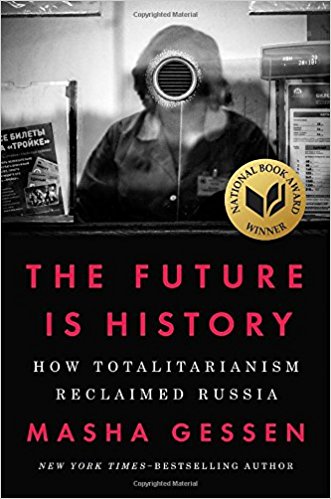
"If I could get you to read just one book on this list, this is it," said Mary Ann Gwinn at The Seattle Times. "An extraordinary work, told with authority, compassion, and sorrowful anger," Masha Gessen's National Book Award winner offers a view from the inside of how post-Soviet Russia so quickly forfeited its chance at democracy and embraced Putin-style totalitarianism. Gessen, who was born in Moscow and educated in the U.S., covers Russia's history since 1989 by deftly weaving together the individual stories of seven well-educated Russians. "Her analysis of Putin's malevolent administration is just as effective," said Kevin Canfield at the San Francisco Chronicle. He has consolidated power by launching military campaigns and by targeting homosexuals and intellectuals. At a moment when many Americans wonder what type of threat Putin poses, this "harrowing, compassionate, and important book" is among the best places to turn.
A dissent: Gessen's argument that "totalitarian" is the perfect word to describe today's Russia "rings hollow," said The Economist. "Language matters."
3. We Were Eight Years in Power by Ta-Nehisi Coates (One World, $28)
A free daily email with the biggest news stories of the day – and the best features from TheWeek.com
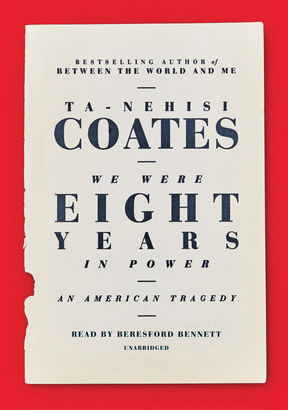
Any book Ta-Nehisi Coates publishes these days qualifies as "a borderline cultural phenomenon," said Carlos Lozada at The Washington Post. That's even true when the book is mostly a collection of essays that have previously appeared at The Atlantic, because, besides being a greatest hits collection by one of the country's most important voices on race, We Were Eight Years in Power offers a candid inside look at his growth as a person and as a writer. Coates exhibits an appealing humility in the essays' introductions, said Chris Hartman at the Christian Science Monitor. He confesses to now being ashamed that in a long 2008 essay on Bill Cosby, he included only one sentence about rape allegations against the star. But on matters related to race, Coates "writes with uncommon vibrancy." These are the essays that made his reputation, all of them illuminating the ways that racism remains a defining force in America, especially in the lives of its targets. At a stormy moment in racial politics, this timely work "adds considerable intellectual ballast to an unsteady American ship."
A dissent: Coates' fetishization of white and black racial identities "mirrors ideas that white supremacist thinkers cherish," said Thomas Chatterton Williams at The New York Times.
4. Grant by Ron Chernow (Penguin, $40)
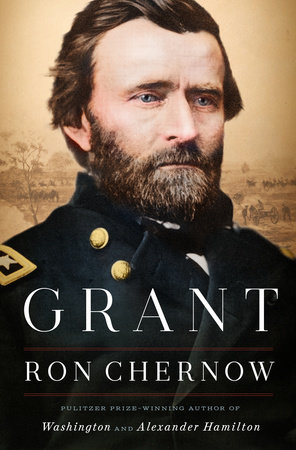
A reappraisal of Ulysses S. Grant is long overdue, said Thomas Ricks at Foreign Policy. "Easily the most underrated and enigmatic of all U.S. presidents," Grant has too often been downgraded because of underlings' scandals and because he liked whiskey. But historian Ron Chernow recognizes that the greatest general of the Civil War was also an immensely consequential political leader, and Chernow's big and rich biography becomes "far more fascinating" after Grant wins his greatest battlefield victories. He "makes a convincing case that Grant behaved nobly, even heroically, while in the White House," said Adam Gopnik at The New Yorker. The Ohio-born son of a tanner suffered the derision of opinion leaders in both the South and the Northeast establishment, but he fought hard to secure rights for the freed slaves and he defeated the Ku Klux Klan — at least for a generation. The real knock on Grant's relative standing among our nation's presidents is that much of the good he accomplished was later undone. In fact, the divided America that the reader encounters in Chernow's account "is, in certain respects, painfully familiar."
A dissent: At 1,100 pages, Grant "may prove a lumbering journey for casual consumers of American history," said Matt Damsker at USA Today.
5. Hunger by Roxane Gay (Harper, $26)
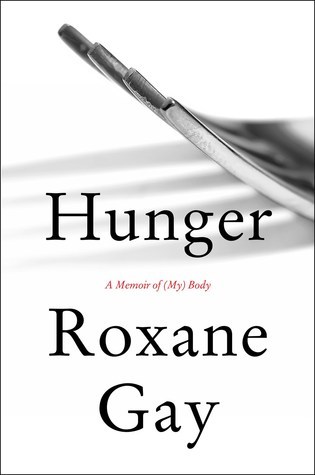
"Every woman who reads Hunger will recognize herself in it," said Cathleen Schine at The New York Review of Books. Novelist and essayist Roxane Gay might appear to have lived an uncommon life: Gang-raped at 12, she semiconsciously began converting her body into a fortress, gaining weight until, in her late 20s, she touched 577 pounds. Somehow, though, the Nebraska-born author of 2014's Bad Feminist writes about the rape "with such wounded, intelligent anger" that the crime "becomes our reality as well as hers," and she writes about the judgments her obesity continues to inspire in a way that reveals "a country we pretend we don't know, one where women struggle every day for dignity, safety, and simple elbow room." Gay has withering words for the celebrities who peddle miracle weight-loss programs but also makes clear that she has internalized some of the shame about her body that their work exploits. Her candor here "eviscerates existing taboos," said Estelle Tang at Elle. No triumph awaits at the story's end, and that makes Hunger "an extraordinary book: an account of a person in progress."
A dissent: Gay's writing, prone to repetition, "can feel circular and sometimes contradictory," said Leah Greenblatt at Entertainment Weekly.
-
 The Week Unwrapped: Do the Freemasons have too much sway in the police force?
The Week Unwrapped: Do the Freemasons have too much sway in the police force?Podcast Plus, what does the growing popularity of prediction markets mean for the future? And why are UK film and TV workers struggling?
-
 Properties of the week: pretty thatched cottages
Properties of the week: pretty thatched cottagesThe Week Recommends Featuring homes in West Sussex, Dorset and Suffolk
-
 The week’s best photos
The week’s best photosIn Pictures An explosive meal, a carnival of joy, and more